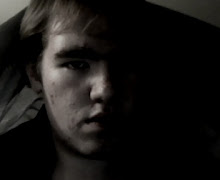
I have always had a fondness for Simone de Beauvoir.
It's interesting to see how many people would agree with the above sentence. Indeed, more and more people who study the French philosophers are now saying "No, it was not Sartre, it was de Beauvoir who was the real influence on the people." Now, perhaps in retrospect de Beauvoir was responsible for more social change than Sartre. However, one cannot forget the importance of Sartre in the very beginning of existentialist philosophy. Albert Camus might be the one who gets you into existentialism (despite the fact that he protested all his life that he was an "absurdest") but Sartre was the one who really explained all of it to the world. Pulling from various philosophers and editing where he saw fit, Sartre created a new form of philosophy which had only been just glimpsed at before him. After him, there were many young Sartres running around, just as after Freud and Jung there were many young Freudians and Jungians running around the psychoanalytic world.
(Indeed, there still are cases of therapists dying their hair gray, shaving off part of it to make themselves bald at the front, putting on glasses, lighting up a cigar and saying "So, how eezz it you feel todaii?")
However, lets not overlook Simone de Beauvoir. In the long run, because she did not become as radical as Sartre did (his apartment was bombed twice) she was able to create more change, rather, she was a more influential thinker. But the question remains: Who was more important in the long run?
People have begun rejecting Sartre more and more since the 1990's. I'm not blaming the 1990's, mind you, I'm just saying. In an odd way, certain philosophers have developed apologists (I'm thinking mostly of Heidegger here, the unrepentant Nazi). Who will apologize for Sartre? The only person I can ever think of who disagreed with him and yet said "Let us not reject him" would have been Simone de Beauvoir. And she's been dead almost twenty years.
To be continued (sometime)
JPC







